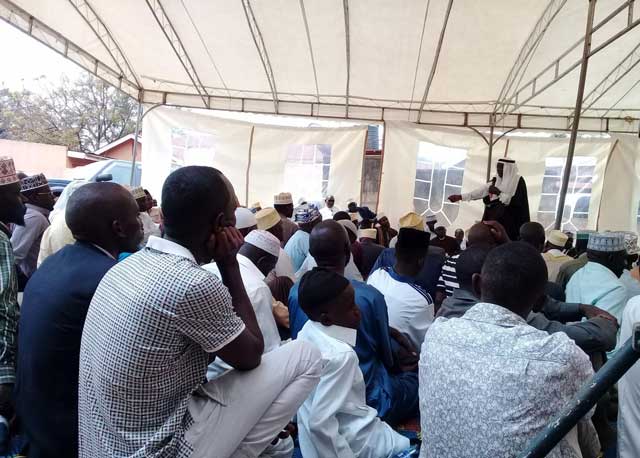
Kampala, Uganda | THE INDEPENDENT | Muslims have been urged to peacefully co-exist with people of differing ideologies and opinion. Sheikh Lukman Wakinyankali, the one of the Imams of Kibuli mosque made the call during memorial prayers for the former Chief Qadhi of Uganda, Kassim Mulumba and at the residence of his son, Shafik Sebugwawo in Old Kampala.
Sheikh Wakinyankali noted that although Muslims could have a different understanding and interpretation of issues, this shouldn’t be enough reason for them to clash and curse others. He also urged Muslims to resolve their grievances silently and avoid using the media to poke at each other.
Sheikh Wakinyankali said that continuous bickering among Muslims has potential to affect the young generation. He noted that a community that doesn’t respect each other’s opinion is at risk of losing its young people who will run to other people seeking solace.
Imam Kasozi from Uganda Muslim Youth Assembly-UMYA, who narrated to the congregation the history of Sheikh Mulumba, urged Muslims to act with humility and respect. He said the failure to co-exist affects progress and development in the community.
Kasozi however asked Muslims to speak out against injustices in the country. He cited an example of Mulumba who spoke out when Muslims were being targeted in the 70s during the over throw of former President, Idi Amin Dada.
The First Deputy Mufti, Sheikh Abdullah Ssemmambo told the congregation about the need to stay together and supportive to their leadership. Ssemambo says leaders might not be empowered enough to speak out when they don’t have the backing of their subjects since they are mere representatives of those they lead.
Sheikh Kassim Mulumba, a former lecturer at Makerere University Department of Religious Studies was the first Kadhi of Kampala Muslim district following the formation of Uganda Muslim Supreme Council-UMSC.
In 1979, he served as the Chief Qadhi of Uganda before he was disposed by Sheikh Obeid Kamulegeya in 1980. He later took over office leading to clashes between his camp and that of Kamulegeya leading to the signing of the Makah agreement that ushered in new leaders.
He died in 1986 and was buried at Old Kampala hill next to the national Mosque.
******
URN
 The Independent Uganda: You get the Truth we Pay the Price
The Independent Uganda: You get the Truth we Pay the Price





